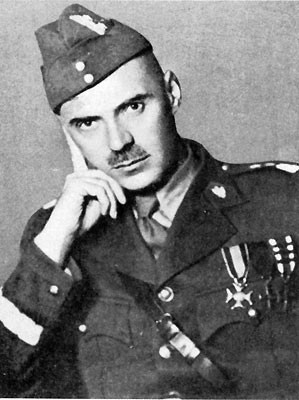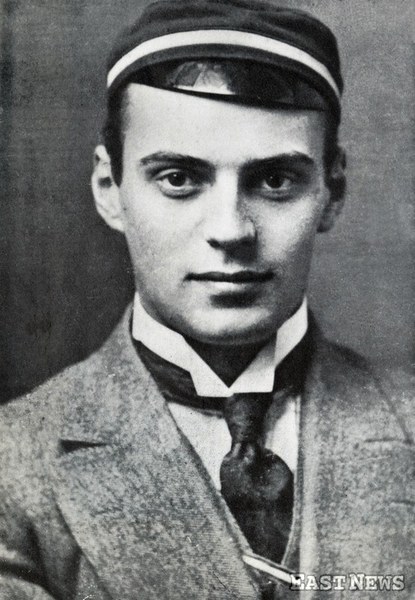Contents
Wladyslaw Anders Net Worth
How rich is Wladyslaw Anders? For this question we spent 6 hours on research (Wikipedia, Youtube, we read books in libraries, etc) to review the post.
The main source of income: Musicians
Total Net Worth at the moment 2024 year – is about $2,1 Million.
Youtube
Biography
Wladyslaw Anders information Birth date: August 11, 1892, Krośniewice-Błonie Death date: May 12, 1970, London, United Kingdom Birth place: Blonie, Krosniewice, Poland, Russian Empire [now Krosniewice, Lódzkie, Poland] Spouse:Irena Anders (m. 1948–1970) Children:Anna Maria Anders, Anna Anders-Nowakowska, Jerzy Anders Parents:Albert Anders, Elizabeth TauchertBooks:An Army in Exile
Height, Weight:
How tall is Wladyslaw Anders – 1,65m.
How much weight is Wladyslaw Anders – 55kg
Pictures




Wiki
Wladyslaw Anders was born on August 11, 1892 in Blonie, Krosniewice, Poland, Russian Empire [now Krosniewice, LГіdzkie, Poland]. He was married to Renata Bogdanska. He died on May 12, 1970 in London, England.
Biography,Before World War IIAnders was born on 11 August 1892 to his father Albert Anders and mother Elizabeth (maiden name Tauchert) in the village of Krosniewice–Blonie, sixty miles west of Warsaw, in what was then a part of the Russian Empire. At the time of his birth Poland did not exist as an independent state, as a result of the Partitions of Poland at the end of the eighteenth century.Both his parents were of Baltic-German origin and he was baptised as a member of the Protestant Evangelical-Augsburg Church in Poland. Anders had three brothers – Karol, Tadeusz and Jerzy, all of whom also went on to pursue careers in the military. Anders attended a technical high school in Warsaw and later studied at Riga Technical University, where he became a member of the Polish student fraternity Arkonia. After graduation Anders was accepted into the Russian Military School for reserve officers. As a young officer, he served in the 1st Krechowiecki Lancers Regiment of the Imperial Russian Army during World War I.When Poland regained independence in November 1918 he joined the newly created Polish Army. During the Polish–Soviet War he commanded the 15th Poznan Uhlans Regiment and was awarded the Silver Cross of the Virtuti Militari. After the war Anders continued his military education in France at the Ecole Superieur de Guerre and upon graduation he returned to Poland, where he served on the general staff of the Polish Army under General Tadeusz Jordan-Rozwadowski.Anders opposed Jozef Pilsudskis coup detat in Poland in 1926 but unlike Jordan-Rozwadowski, he avoided persecution by the Sanation regime that assumed power after the coup. Pilsudski made him the commander of a cavalry brigade in 1931 and he was promoted to the rank of general three years later.World War IIAnders commanded the Nowogrodzka Cavalry Brigade during the German Armys invasion of Poland in September 1939 and was immediately called into action, taking part in the Battle of Mlawa. After the collapse of the Polish Northern Front the brigade withdrew towards Warsaw, and also fought heavy battles against the Germans around Minsk Mazowiecki and in the second phase of the Battle of Tomaszow Lubelski. After learning about the Soviet invasion of Poland, Anders retreated south in the direction of Lwow (now called Lviv), hoping to reach the Hungarian or Romanian border, but was intercepted by Soviet forces and captured on 29 September, after being wounded twice.He was initially jailed in Lwow and subsequently transferred to the Lubyanka prison in Moscow on 29 February 1940. During his imprisonment Anders was interrogated, tortured and unsuccessfully urged to join the Russian Army.A wartime picture of Anders.After the launch of Operation Barbarossa and the signing of the Sikorski-Maisky agreement, Anders was released by the Soviets with the aim of forming a Polish Army to fight against the Germans alongside the Red Army. Continued friction with the Soviets over political issues as well as shortages of weapons, food and clothing, led to the eventual exodus of Anders men – known as Anders Army – together with a sizeable contingent of Polish civilians who had been deported to the USSR from Soviet-occupied Poland, via the Persian Corridor into Iran, Iraq and Palestine. Here, Anders formed and led the Polish 2nd Corps, while continuing to agitate for the release of Polish nationals still in the Soviet Union.The Polish 2nd Corps became a major tactical and operational unit of the Polish Armed Forces in the West. Anders commanded the Corps throughout the Italian Campaign, capturing Monte Cassino on 18 May 1944, later fighting on the Gothic Line and in the final spring offensive.After World War IIAfter the war the Soviet-installed communist government of Poland deprived him of Polish citizenship and of his military rank. Anders had, however, always been unwilling to return to a Soviet-dominated Poland where he probably would have been jailed and possibly executed, and remained in Britain. He was prominent in the Polish Government in Exile in London and became inspector-general of the Polish forces-in-exile, as well as working on behalf of various charities and welfare organisations.His book about his experiences during the Second World War, An Army in Exile, was first published by MacMillan & Co, London, in 1949.He died in London on 12 May 1970, where his body lay in state at the church of Andrzej Bobola, and many of his former soldiers and their families came to pay their last respects. He was buried, in accordance with his wishes, amongst his fallen soldiers from the 2nd Polish Corps at the Polish War Cemetery at Monte Cassino in Italy.After the collapse of communist rule in Poland in 1989, his citizenship and military rank were posthumously reinstated.Many personal effects which once belonged to Anders are on display in the Polish Institute and Sikorski Museum in London.Private lifeAnders was married twice. He had two children with his first wife Irena Maria Jordan-Krakowska (born 1894, died 1981) – a daughter, Anna (born 1919, died 2006) and a son, George (born 1927, died 1983).In 1948 he married the actress and singer Irena Jarosiewicz, better known under her stage name Renata Bogdanska, with whom he had a daughter, Anna Maria (born in 1950).
Summary
Wikipedia Source: Wladyslaw Anders